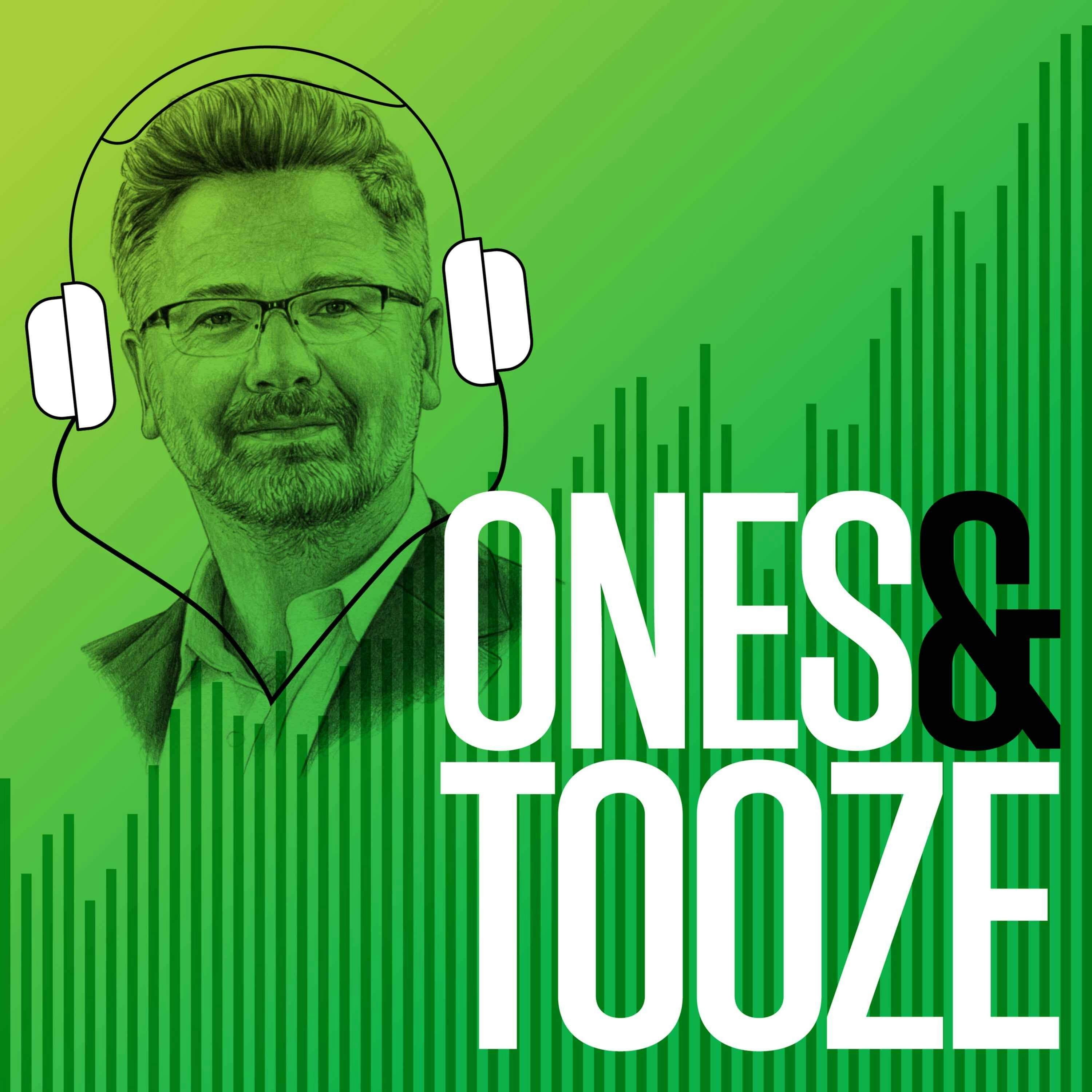

Ones and Tooze
Foreign Policy
Foreign Policy economics columnist Adam Tooze, a history professor and a popular author, is encyclopedic about basically everything: from the COVID shutdown, to climate change, to pasta sauce. On our new podcast, Tooze and FP deputy editor Cameron Abadi will look at two data points each week that explain the world: one drawn from the week’s headlines and the other from just about anywhere else Tooze takes us. Check out Adam Tooze’s column at https://foreignpolicy.com/author/adam-tooze/.
Episodes
Mentioned books

5 snips
Jan 13, 2023 • 39min
The Economic Philosophy of Martin Luther King, Jr.
Dr. Martin Luther King, Jr., was a towering figure in the history of American civil rights. But he also had an economic philosophy, and he expressed his ideas late in life about capitalism, communism and the right path for the United States. As Americans observe King's birthday in the coming week, Adam and Cameron discuss his approach to economic policy and justice. Learn more about your ad choices. Visit megaphone.fm/adchoices

4 snips
Jan 6, 2023 • 34min
What FTX's Collapse Tells Us About The Bahamas
How did The Bahamas become a global center for money laundering, tax avoidance, and financial engineering? Adam and Cameron take up this question following the collapse of FTX, which had its headquarters in the island country. Also on the show: Is the fusion revolution really here? Learn more about your ad choices. Visit megaphone.fm/adchoices

7 snips
Dec 30, 2022 • 40min
Three Economic Stories to Watch in 2023
On this episode, Adam and Cameron discuss three things that could roil the world's economy in 2023: the downturn in the U.S. housing market, the yield curve control of the Bank of Japan, and the debt crisis in Africa. Learn more about your ad choices. Visit megaphone.fm/adchoices

11 snips
Dec 23, 2022 • 42min
Is Biden Killing the World Trade Organization?
The United States is challenging the very authority of the World Trade Organization—which it helped establish decades ago. Adam and Cameron discuss why and what a weakened WTO would mean for the world.Also on the show: Why Americans give more to charity than anyone else in the world (hint: it's less about altruism and more about how Americans organize themselves). Learn more about your ad choices. Visit megaphone.fm/adchoices

Dec 16, 2022 • 44min
Ukraine So Far
Adam and Cameron look back at the first 10 months of Russia's war in Ukraine and its economic impact around the world. They also discuss the economics of...snow—just in time for the winter. Learn more about your ad choices. Visit megaphone.fm/adchoices

Dec 9, 2022 • 41min
Will Qatar Always Be Rich?
Natural gas has made Qatar among the wealthiest countries in the world. On this episode, Adam and Cameron discuss whether global warming and other factors will change the country's economic outlook. Also on the show: ChatGPT is pushing AI into the mainstream. What does it mean for labor markets? Learn more about your ad choices. Visit megaphone.fm/adchoices

Dec 2, 2022 • 33min
China's Zero COVID Fiasco
China was one of the first countries to produce a COVID vaccine but nearly three years into the pandemic, only 50 percent of its population is vaccinated. Why is that? And why did Chinese leaders opt for lockdowns instead of a more aggressive vaccination campaign? On this episode, Cameron and Adam unpack the issue and assess what sustained protests could mean for China and the world. Learn more about your ad choices. Visit megaphone.fm/adchoices

Nov 23, 2022 • 27min
Thanksgiving Economics Revealed
Ever want to know why turkeys are actually cheaper around Thanksgiving or the origins of Black Friday? Get ready to be the smartest person at the holiday table as Adam reveals some of the lesser known economic histories of Thanksgiving. In the second segment Adam and Cameron share what they've been most thankful for this past year. Learn more about your ad choices. Visit megaphone.fm/adchoices

Nov 18, 2022 • 35min
Unpacking the FTX Crypto Collapse
This week on the show, hosts Cameron Abadi and Adam Tooze analyze how the $32 billion cryptocurrency company FTX went bankrupt and its implications for crypto more generally. They also discuss inflation’s surprisingly small role in the U.S. midterm election results. Learn more about your ad choices. Visit megaphone.fm/adchoices

Nov 11, 2022 • 28min
Farewell to the French Philosopher Bruno Latour
Adam and Cameron discuss the work of French philosopher Bruno Latour, who died last month. Latour was not an economist but his ideas touched on related issues, including climate change, economic growth, and the relationship between scientific inquiry and facts. His work had a profound influence on Adam. Learn more about your ad choices. Visit megaphone.fm/adchoices


